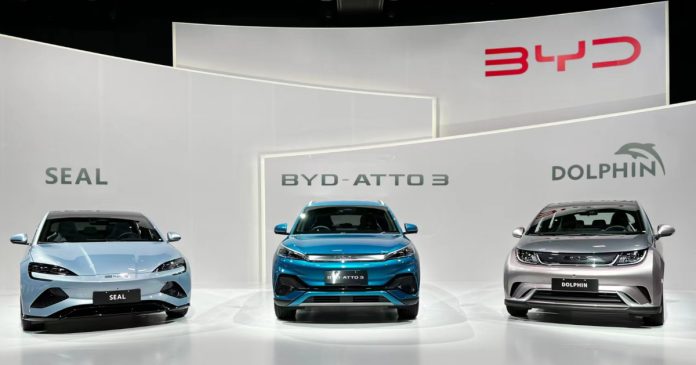Brazil’s economy has been surprisingly resilient this year. Deloitte states: “Inflation-adjusted wages continue to grow relatively rapidly as consumer price growth slowed. The labor market has recently tightened, and consumer confidence has soared. As a result, consumer spending is growing at a respectable rate. Pushing inflation lower will be more challenging from here. A lack of improvement on the inflation front will likely restrain consumer spending as real wage growth and interest-rate cuts slow.”
This growth in consumer spending has pushed the Brazilian Vehicles Market higher and higher. In October 2024 sales volume grew for the 6th month in a row with 221,965 new vehicle registrations (+18.4%). YTD figures at 1,7 million were up 13.9% from the prior year.
Looking at cumulative data from October 2024 brand-wise, Fiat reported the most sales at 422,210 (+9.79%), followed by Volkswagen at 320,284 (+17.13%) and Chevrolet with 252,108 sales (-6.17%).
In 4th ranked, Toyota with 170,785 sales (+8.72%), followed by Hyundai at 160,578 (+10.79%), Renault -up 1 spot- with 105,264 (+6.25%), Jeep -down 1 spot- with 99,728 (-6.6%), Nissan -up 1 spot- with 74,824 sales (+25.79%) and Honda with 73,614 (+24.9%).
BYD grew 7 spots and ranked in 10th, reporting 56,588 new vehicle registrations (+534.04%).
Looking at the best-selling models, reported in the dedicated post, the Fiat Strada was still the best seller growing 17.85% in sales, followed closely by the Volkswagen Polo, up 34.86%.
Medium-Term Market Trend
The Brazilian vehicles market has had a few ups and downs in the past decade, with 2012 registering the highest levels for the following years. Previously, starting in 2010, the market rose for two consecutive years reaching 3.6 million sales in 2012. In 2013 the Brazilian market began a 4 year negative trend falling a maximum of 25.6% in 2015 and reaching 2 million sales in 2016. Luckily from 2017 to 2019 sales grew, reaching 2.7 million sales.
In 2020 The COVID-19 pandemic has caused severe human suffering and triggered a deep recession in Brazil. The demand for consumer’s goods declined and light vehicles sales fell below the 2 million mark, first time in the decade.
Although the economy recovered in 2021 (GDP +5.0%) the basic trend was still weak. In fact, 2022 slowed down 0.9% with inflation rates jumping up and the demand remaining weak.
Projections for 2023 were not looking good due to the continuous price increases in parallel with the adoption of more safety rules and the shift towards electrification. Despite this 2023 reported a total of 2.18 million sales, posting an 11.3% increase from the prior year.
Tables with sales figures
In the tables below we report sales for all Brands, top 10 Manufacturer Groups, and top 10 Models.
